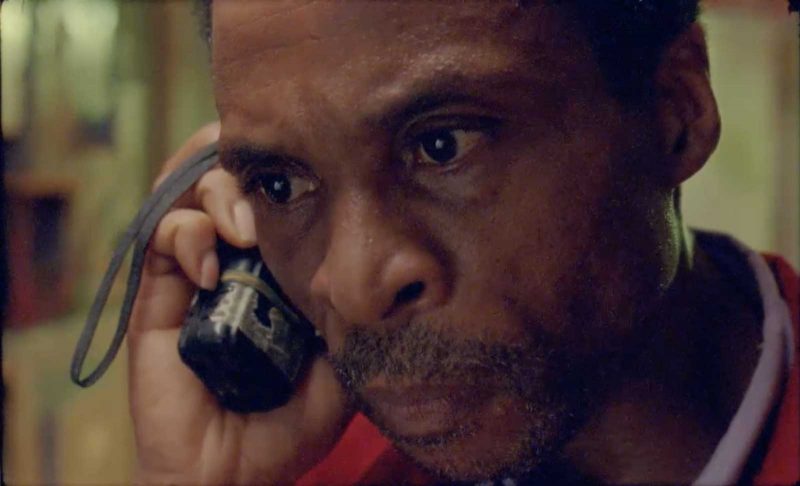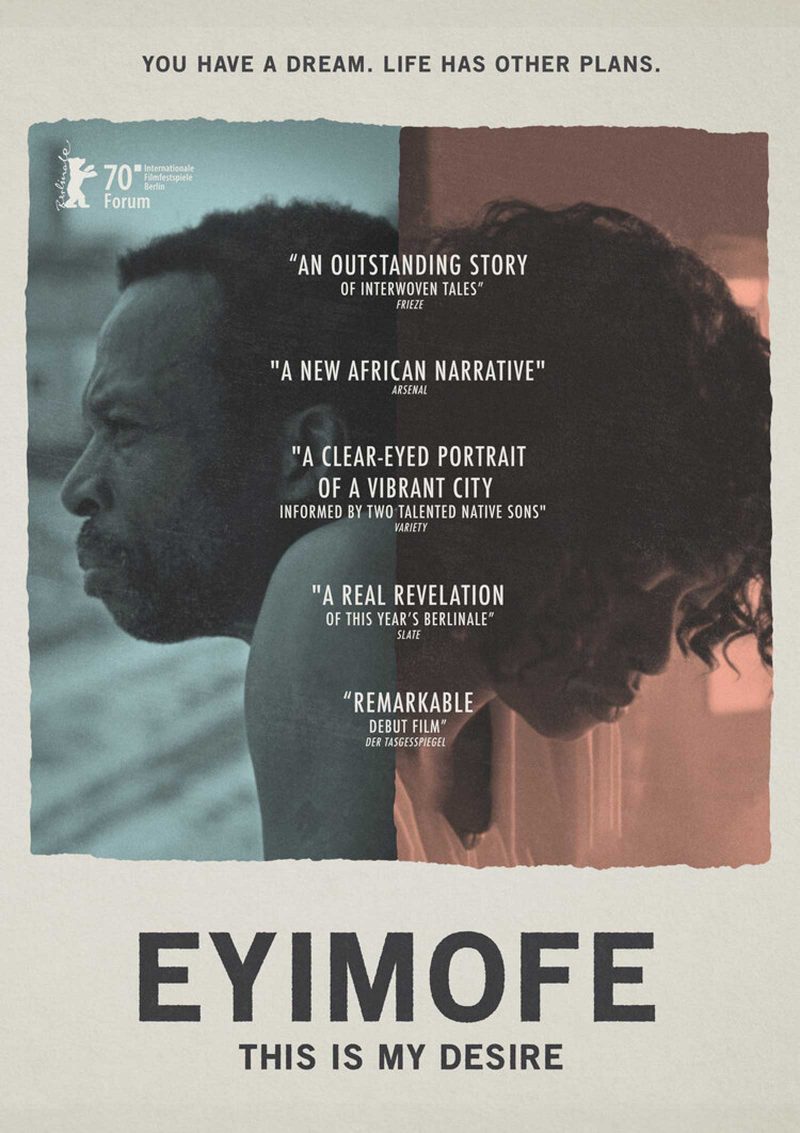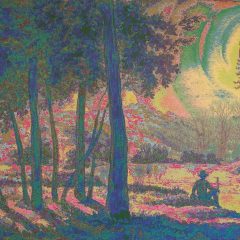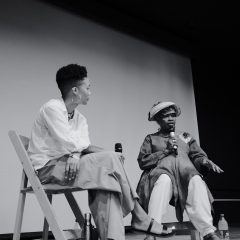
An exceptional highlight at Blackstar Film Festival was the full-length feature Eyimofe (This Is My Desire), co-directed by twin brothers Arie and Chuko Esiri. Their rich and colorful debut is a harrowing, two-story wonder on the plight of obtaining a passport— oftentimes difficult and challenging for citizens residing in a lot of foreign countries— and what awaits when immigration dreams cannot immediately come true. Set in Lagos, Nigeria and split between two chapters titled “Spain” and “Italy,” Eyimofe narrates the story of an unfortunate trio of neighbors— Mofe, a talented, middle-aged factory engineer, Rosa, a poor hairdresser/bartender, and Grace, Rosa’s pregnant younger sister— experiencing the same problems but for whom fate has different paths in store.
First we meet Mofe, who lives with his sister and three nephews. When he receives a brand new passport, the family fawns over the document as though it were sequestered in gold. Everyone in the neighborhood congratulates him on the success. However, before any potential flying plans can be made, a tragedy with several deaths occurs. The setbacks pile absurdly high on a lonely Mofe; he encounters money scheme after money scheme—paying for bodies, paying for caskets, paying for burial, paying for a lawyer to obtain banking accounts. To add insult to injury, Mofe’s father claims an inheritance that should have been Mofe’s. His meltdown at work is expected, even warranted. The surmounting mental, psychological, and emotional stress brings about a simple, alarming question— where is the time to mourn when one is expected to keep pushing on?
While Mofe’s tale is heartbreaking, Rosa and Grace’s miserable situation hits closer to home. As a woman, life is much more complicated and politically/socially/economically backward. Rosa, who is not all that much older than her sister Grace, is a single woman trying to thrive as a hairdresser and bartender; but she relies heavily on men to financially survive. Meanwhile, Rosa and Grace have a wild plan to sell Grace’s baby to a boisterous Mama Esther—who may or may not be a madam— in order to obtain their passports. Sadly, after an unexpected misfortune, they are left with two options: either Rosa and Grace work off a debt together for Mama Esther or Rosa marries to save face— a lose-lose situation for womanhood.
In addition to their universal global travel woes, Mofe, Rosa, and Grace’s bodies symbolize the global phenomenon of the severely overworked. Mofe’s body is his main survival source, primarily his hands for breaking things apart and his brain for manually putting them back together. For Rosa and Grace, their bodies operate as sexual labor and surrogacy. As Grace gradually fails to take proper care of herself and the baby, the consequences are devastating to her young body as she falls into a depression. This is perhaps due to a combination of things: her pregnancy was likely not a true consensual experience, unpreparedness to carry a child to term, giving up the child, and getting her passport together. In fact, Grace’s body language throughout implies a great lack of interest in motherhood, even in traveling. She wants to be free-spirited, to be a girly teenager and have fun with her friends, to perhaps secretly remain in Lagos.
The crucial aspects to take away from Eyimofe (This Is My Desire), which won Blackstar Film Festival’s “Best Narrative Feature Award,” is that the film brings vintage cinematic technique to modern Nigeria—a warm, saturated picture quality that syncs beautifully with Akin Abedowale’s mood enhancing music selection of quiet reflections and uptempo rhythms. Plus, Mofe, Rosa, and Grace move the heartbreaking stories forward: detrimental financial burdens; lack of time off from work to grieve; and the desperation to make ends meet. Yet throughout is the overwhelming affection and love for family (more importantly sisters) and community. The Esiri brothers ask the audience to imagine/consider the trio’s possibilities, especially in how gender roles play a huge part of why they must place home life on the front burner. European travel may be on standby, but Nigeria still has something beneficial to offer as well.
“Eyimofe (This is My Desire)” (2020), Directed by Arie Esiri & Chuko Esiri. 116 minutes. Learn more about the film on their website, www.eyimofe.film










